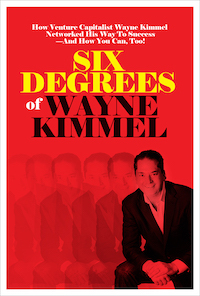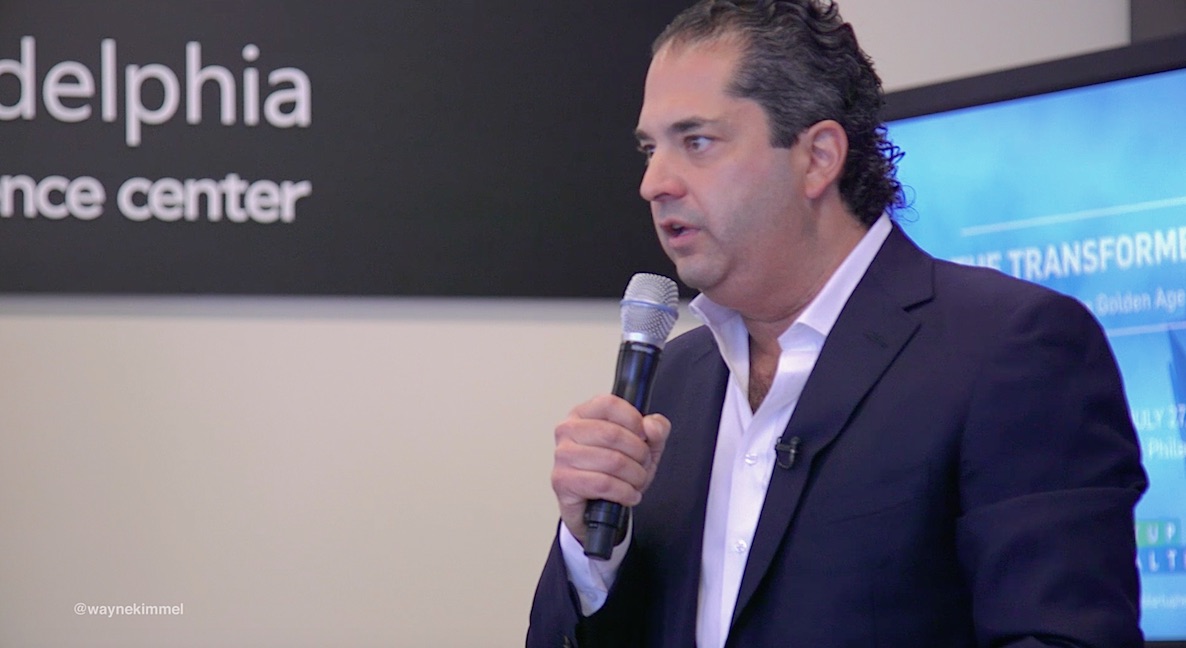Jason [Finger] and Paul [Appelbaum’s] idea grew out of the same thought process that has given birth to disruption throughout our history: Whenever and wherever progress is made, you can usually trace it back to someone saying to him or herself, “There’s got to be a better way.”
Jason and Paul were young lawyers at big New York law firms, the type of firms ![]() that work their ambitious associates to death. They were in the office every night till midnight—or later. At around 8 pm, they’d order dinner. And that’s when the trouble started. They could purchase up to $50 per dinner per night and were expected to charge that amount to whatever client whose account they were working on at the time.
that work their ambitious associates to death. They were in the office every night till midnight—or later. At around 8 pm, they’d order dinner. And that’s when the trouble started. They could purchase up to $50 per dinner per night and were expected to charge that amount to whatever client whose account they were working on at the time.
They didn’t have corporate cards. They’d have to use their own personal credit cards to pay for the food delivery and hang on to the receipt. Then they were expected to fill out an expense form, attach the receipt, and hand it to their respective assistants, who would then turn the paperwork over to accounting. The reality of this system soon hit: Come month’s end, Jason, Paul and so many of their friends had drawers full of random receipts piling up in their desks. It was the end of the month, which meant they needed to pay their credit card bills, but reimbursement from accounting would invariably take too long to come through.
They thought: There’s got to be a better way. What if there was a system where young lawyers could go online, order their food, put in their client code, and include a tip. The restaurant would receive the order and send the delivery out. And the law firm’s accounting office would have an instantaneous record of who was charging what. That was key: In many cases, lawyers like Jason and Paul were closing multi-hundred million dollar deals. Typically, such deals closed with a flurry of late night, round the clock sessions, with food strewn all over conference tables. A deal would close and then, a month later, accounting would advise that a few thousand dollars of food costs from those last, harried nights had not been figured into the deal. The lawyers were in a quandary: They’d just sent their client a final invoice for fees of, say, $500,000 and now comes this straggler of a bill for a couple of thousand more dollars for food? Most firms just ate that expense, if you’ll pardon the pun.
We invested more than $1 million of our first fund into the company. Aramark bought it in 2006, and we made close to thirty times our money on the deal. This one investment alone more than paid back that first $20 million. Of course, SeamlessWeb would become GrubHub, which today has a multi-billion dollar market cap and is traded publicly on the New York Stock Exchange.
Maybe it was because of my legal background, but once I saw Jason and Paul’s business plan for a web-based solution to this mess, I got that they were on to something. They had a solution to a real world problem. But as a VC, it’s never too early to think about your exit. Let’s say this works, I thought. Who’s going to buy it? How am I going to pay back my investors?
So, yes, I was attracted to this idea—they were calling it SeamlessWeb—because I saw the need and I saw that it was solving a business problem for law firms. But even then I knew my gut wasn’t enough. I’ve always believed in finding experts and listening to them. That takes humility, and discipline. You have to acknowledge that there are people who know more than you, and then you have to seek them out and be open to what they say—even if it conflicts with what your gut is saying.
Going over Jason and Paul’s business plan before I even met them, I had a thought: Aramark should buy this company. Aramark was a Philadelphia-based food services Fortune 500 corporation. I’d become friendly with Richard Wyckoff, the president of Aramark’s refreshments division. We’d been introduced by mutual friends. He was active in YPO and we’d played golf together. I decided to invite him to my first meeting with Jason and Paul.
Now, you might think that’s premature. After all, I hadn’t even met with these guys yet, and here I was bringing along an outsider to help me size them up. But I wanted to know if this was going to be worth my time. I wanted to know what an expert thought.
So we had a meeting, and after Jason and Paul made their case and left, I turned to Richard.
“What do you think?”
He let out a low whistle. “If they can do what they say they can do,” he said. “Aramark should buy this company.”
I’ve always believed in finding experts and listening to them. That takes humility, and discipline. You have to acknowledge that there are people who know more than you, and then you have to seek them out and be open to what they say—even if it conflicts with what your gut is saying.
Now I had my game plan. I’d help SeamlessWeb get off the ground, and I’d keep Richard and Aramark appraised of the progress along the way. One of the things I learned over the next few years as we laid the groundwork for such an exit was that, even though Aramark ran cafeterias for law firms and businesses, providing the opportunity for office workers to seamlessly order in food helped Aramark’s bottom line. How? They’d no longer have to invest in all that overhead to keep their cafeterias open into the night. Gone would be the days that the lights stayed on and the staff stood at the ready just to serve one guy a hamburger at 8 pm. This way, Aramark could shut down its cafeterias after lunch and still capture some revenue from food delivered in after hours.
SeamlessWeb was an instant hit. Sure, it involved having to install computers at some restaurants—not every business was online back in the day—but it was embraced by companies and restaurants alike. We went from law firms to investment banks and hedge fund firms, and the restaurants loved it be-cause SeamlessWeb paid them in a timely manner. They didn’t have to send bills; at the end of the month, the account was settled. After 9/11, many of the companies who were forced to relocate from lower Manhattan no longer had cafeterias in their new digs. The need for SeamlessWeb was even greater. By year five, with hundreds of thousands of customers using the service in New York City, then we opened it up to consumers.
We were the only venture capital investor in SeamlessWeb. We invested more than $1 million of our first fund into the company. Aramark bought it in 2006, and we made close to thirty times our money on the deal. This one investment alone more than paid back that first $20 million. Of course, SeamlessWeb would become GrubHub, which today has a multi-billion dollar market cap and is traded publicly on the New York Stock Exchange. For us, it was a homerun right out of the gate, and it wouldn’t have happened without nearly flawless execution by the management team and two key relationships: The call and referral from [my friend, CEO and co-founder of StartUp Health] Steve Krein and the expert advice from Richard Wyckoff, which was followed by years of staying in touch with him and keeping the possibility of an eventual sale front and center in his mind.
Wayne Kimmel is the managing partner of SeventySix Capital, the venture capital firm he founded in 1999. This excerpt is from Six Degrees of Wayne Kimmel, Kimmel’s book about how he networked his way to success.




